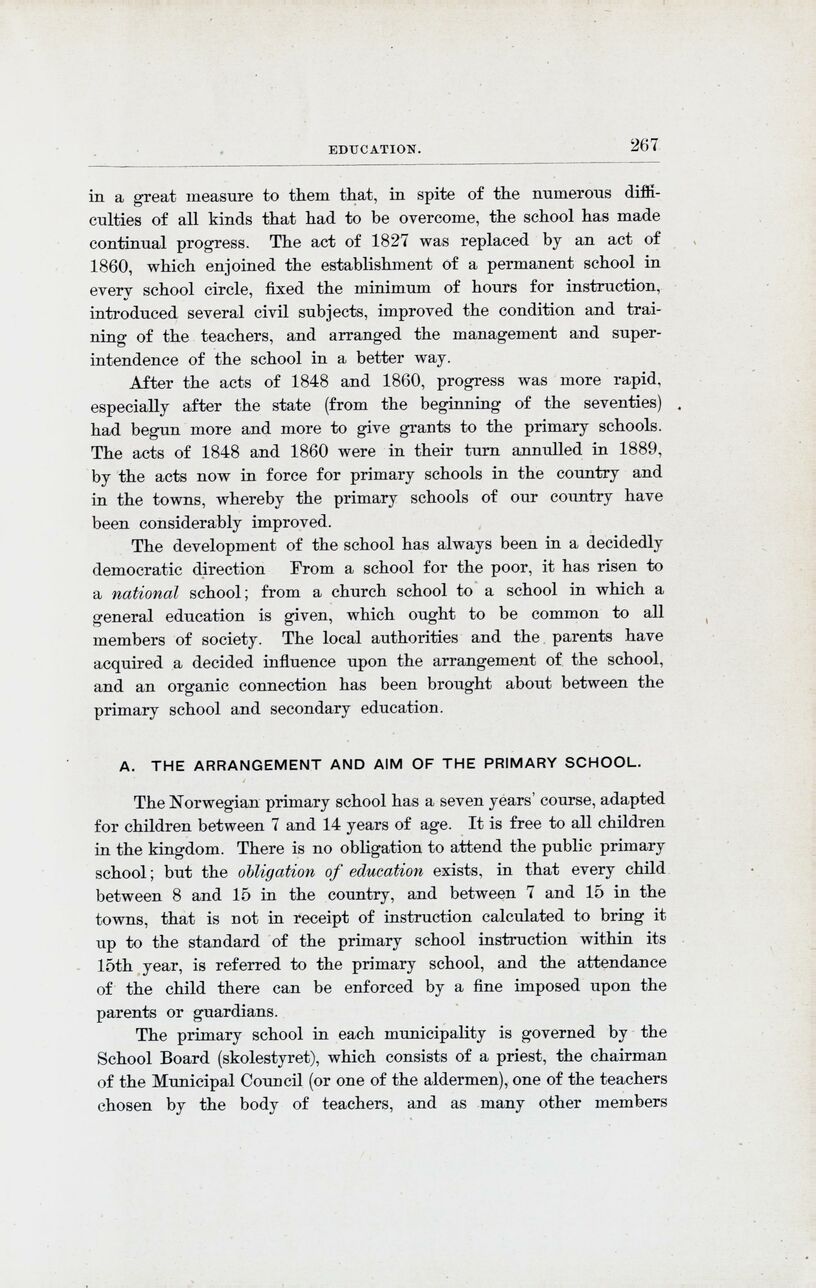
Full resolution (JPEG) - On this page / på denna sida - Education, by J. V. Heiberg

<< prev. page << föreg. sida << >> nästa sida >> next page >>
Below is the raw OCR text
from the above scanned image.
Do you see an error? Proofread the page now!
Här nedan syns maskintolkade texten från faksimilbilden ovan.
Ser du något fel? Korrekturläs sidan nu!
This page has been proofread at least once.
(diff)
(history)
Denna sida har korrekturlästs minst en gång.
(skillnad)
(historik)
in a great measure to them that, in spite of the numerous
difficulties of all kinds that had to be overcome, the school has made
continual progress. The act of 1827 was replaced by an act of
i860, which enjoined the establishment of a permanent school in
every school circle, fixed the minimum of hours for instruction,
introduced several civil subjects, improved the condition and
training of the teachers, and arranged the management and
superintendence of the school in a better way.
After the acts of 1848 and 1860, progress was more rapid,
especially after the state (from the beginning of the seventies)
had begun more and more to give grants to the primary schools.
The acts of 1848 and 1860 were in their turn annulled in 1889,
by the acts now in force for primary schools in the country and
in the towns, whereby the primary schools of our country have
been considerably improved.
The development of the school has always been in a decidedly
democratic direction [[** sic, punktum mgl]] From a school for the poor, it has risen to
a national school; from a church school to a school in which a
general education is given, which ought to be common to all
members of society. The local authorities and the parents have
acquired a decided influence upon the arrangement of the school,
and an organic connection has been brought about between the
primary school and secondary education.
<< prev. page << föreg. sida << >> nästa sida >> next page >>